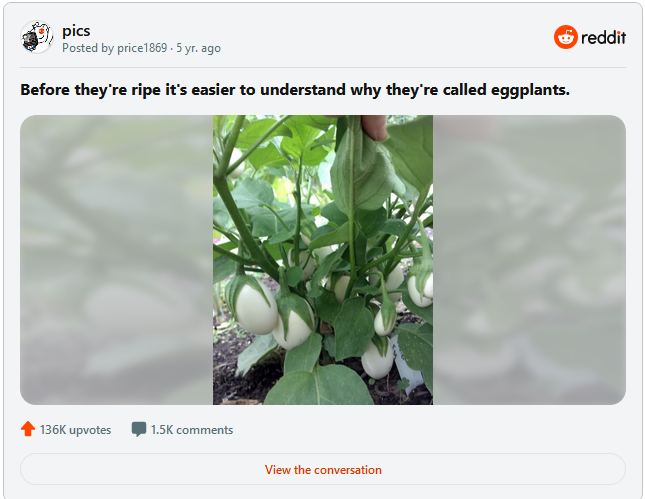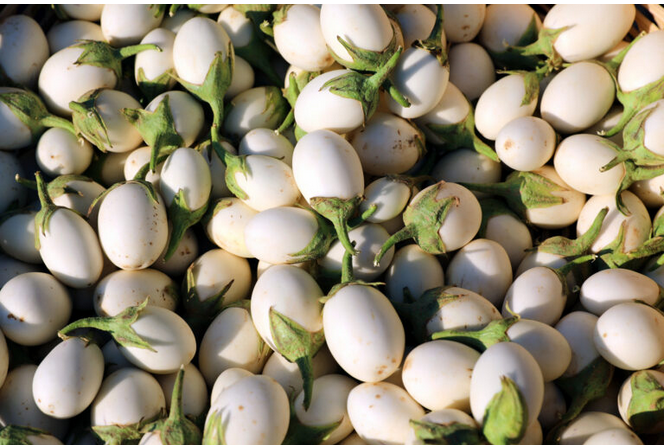Eggplants are a staple in many cuisines, and their versatility makes them a great addition to various dishes. However, have you ever wondered how this unique vegetable got its name? The answer lies in its surprising history.
The name “eggplant” might seem misleading, as the traditional purple variety doesn’t resemble eggs at all. However, a popular Reddit image has shed light on the fruit’s earlier form, revealing a surprising connection to its name.

White eggplants, also known as white aubergines, are a type of eggplant that differs from the more common deep purple variety. While the image might suggest that all white eggplants are small, they can actually grow longer. Similarly, purple eggplants can sometimes be small and rounded.
In terms of flavor, all eggplants have the potential to be quite bitter and rough when raw. However, when cooked, they become an excellent food for absorbing the flavors of other ingredients. They can be grilled, roasted, sautéed, or fried, and pair particularly well with delicate flavors or light sauces.

Interestingly, white eggplants have a “fruity and mild” flavor, according to Specialty Produce. When cooked, they become “warm” and “mellow.” It’s recommended to remove the thicker skin from white eggplants before cooking, while purple eggplants can be consumed with their thinner skin intact.
Although white eggplants are less common than traditional eggplants, home gardeners can often find them in specialty stores or through online seed catalogs.

The history of eggplants dates back to a Chinese book on agriculture from 544, where they were first mentioned as a fruit with a peculiar name. According to legend, European farmers in the 1700s gave them their name due to their resemblance to goose or duck eggs, which were small and white or yellow.
The next time you slice into an eggplant, remember its surprising history and the unique journey it took to get its name.


